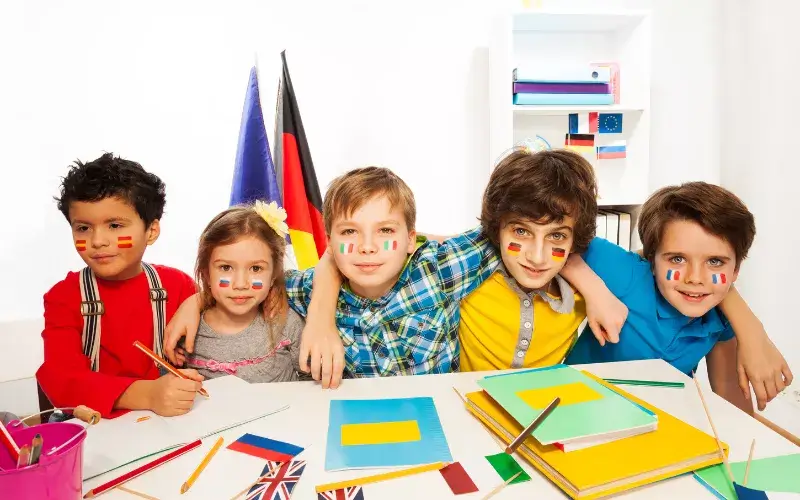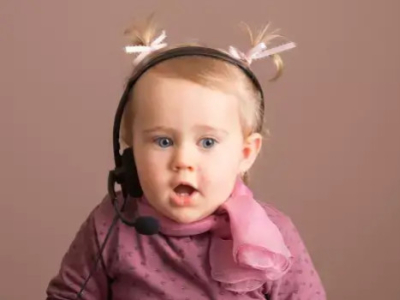
Learn a foreign language from a young age!
Children have a much easier time acquiring a language than older students.

But beyond the possibility of learning English, German or Chinese better and faster, these children also develop their cognitive abilities: their vocabulary improves in their own language, and they demonstrate better reasoning skills than those who speak only one language.
While vocabulary can be acquired at the same rate regardless of age, other aspects of language are directly dependent on the age at which it is learned.
Better pronunciation
Children and pre-adolescents have a better ability to record and replicate new sounds than older students.
This ease, which would come from the need for any individual to learn to communicate, including in their own language, is undeniably an advantage for having correct pronunciation afterwards: it is very difficult to "acquire" new sounds afterwards, because loses this natural ability that children have to replicate what they hear without asking questions.
Easy learning
The learning of the language is done in young children through games, activities and songs which are not assimilated to lessons and are better remembered than lessons classics.
Naturally curious and interested, children also don't have as much to remember as other students; they therefore have a greater ability to learn new things, as their minds are not as “cluttered” with knowledge.
Less shyness

The notions of evaluation and comparison with other students are also not yet present, or at least not as developed as among their older counterparts: they therefore have better ability to "get started" and dare to try to express themselves without asking questions. Languages are learned mainly through oral expression, they generally progress much faster.
A more open mind
Learning a language from an early age encourages a child or adolescent to be interested in new cultures and to develop an open and critical mind.
Multilingual children are generally more curious than those who only speak one language, and their ability to speak one or more additional languages allows them to explore more media and communicate with more people. world, maintaining a virtuous circle.

An advantage for the future

A multilingual child will be better able to integrate into today's multicultural society; not only because of this language but also because he will have met other learners and teachers from other cultures and backgrounds and will be open to the international scene.


